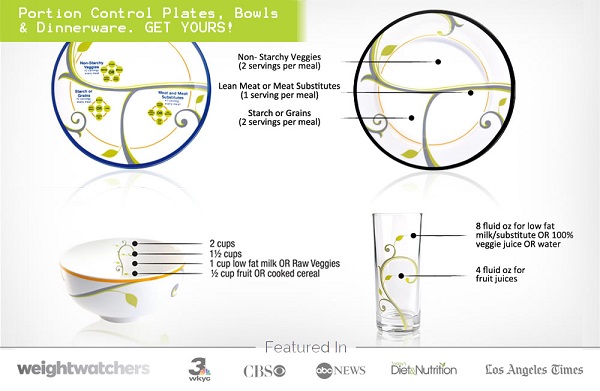Flax or flaxseed has been consumed as food for the past 6,000 years starting at Babylon. There is no doubt as to the reason why it is still being consumed up to the present day. Flax brings about many health benefits to the human body and a number of those are for the digestive system.
As time passes by and as the world becomes fast paced, food habits change. More and more people opt for fast food and fatty meals which impose great risks to the digestive system. Examples of which are hyperacidity and indigestion.
Digestive System Benefits of Flax
Here are the 5 Major Digestive System Benefits of Flax:
1. Flaxseed is high in FIBER.
According to draxe.com, “one of the most extraordinary benefits of flax seeds is that they contain high levels of mucilage gum content. Mucilage is a gel-forming fiber that is water soluble and has incredible benefits on the intestinal tract. The mucilage can keep food in the stomach from emptying too quickly into the small intestine which can increase nutrient absorption.”
Consuming regular amounts of fiber promotes regular bowel movement and can reduce sugar cravings, support colon detoxification and fat loss. Eating the right amount of fiber will also keep your stomach full and satisfied for a longer period of time; thus paving the way for weight loss.
A diet that is high in fiber helps contribute towards a fully functioning digestive system. The recommended intake of fiber for adults is 18 mg.
2. Flaxseed contains a high amount of OMEGA 3 fatty acids.
Probiotics aid in the breaking down of food eaten. The proper absorption of nutrients is achieved when there is a healthy balance of probiotics in the body. According to Pierce Holmford, “A deficiency of probiotics can allow the bad bacteria to build up and increase which can lead to disease. Omega 3 oils help to promote a good balance of probiotics inside your digestive tract.”
In looking for foods that are high in omega 3 fatty acids, flaxseed is a part of the list. These fatty acids help contribute to the maintenance of normal blood cholesterol levels, and can also improve some digestive issues including inflammatory bowel diseases.
3. HEALTHY OILS are found in flaxseed.
The healthy oils and lignans that are contained in flax seeds also help to contribute to digestive regularity, by lubricating your digestive system and making it much easier for food to pass through your system.
Lignans have both plant estrogen and antioxidant qualities. The healthy oils and lignans found in flaxseed are proven to be effective natural remedies for relieving constipation.
4. Flaxseed LOWERS CHOLESTEROL.
Based on the article written by Andrea Nakayama, ”Cholesterol synthesizes bile acids. Bile acids are essential for the absorption of fat from the small intestines. The bile acids work like a detergent to break down and emulsify fat into microscopic droplets. Those tiny beads of fat then have enough of an exposed surface area for lipases (your fat digestive enzymes) to come in and do their job of digestion.”
However, too much cholesterol can lead to a “bile imbalance” which may lead to gallstones.
The soluble fiber content of flax seeds trap fat and cholesterol in the digestive system so that it is unable to be absorbed. Soluble fiber also traps bile, which is made from cholesterol in the gallbladder. The bile is then excreted through the digestive system, forcing the body to make more, using up excess cholesterol in the blood and lowering cholesterol overall.
5. Flaxseed aids in overall DIGESTIVE HEALTH.
Alpha-Linolenic Acid or “ALA” is a kind of omega-3 fat which makes up 50% of the oil in flaxseed.
ALA found in flax helps protect the lining of the digestive tract and aids in maintaining GI (Gastrointestinal) health. It was also shown that flaxseed gave benefits to those suffering from Crohn’s disease, a chronic inflammatory disease of the intestines. This is possible because flaxseed helps reduce gut inflammation.
How Flax or Flaxseed Aids the Digestive System
These are the top 5 ways on how flax or flaxseed aids the digestive system.
Digestive problems can range from indigestion, diarrhea, constipation, hyperacidity and many more.
Our gut does more than just processing food. A healthy gut improves resistance to infection, enhances nutrient absorption and may reduce formation of kidney stones.
As people age, their metabolism slows down and the capacity of their digestive system to properly and efficiently digest food decreases. Taking care of your digestive system does more than just being away from sickness. Taking proper care of your gut means a happy life. With the fast paced lifestyle and busy working schedules, healthy food habits and proper health maintenance are what people often neglect.
Eating a healthy diet plays a major role in the digestive health of individuals. Flaxseed contains many benefits that will improve the condition of your digestive system.







 We're committed to bringing you the best in health and helping you discover the wonderful world of the DASH diet. If you're looking to control your blood pressure, hypertension, or just looking to get into great health, we're here to help.
We're committed to bringing you the best in health and helping you discover the wonderful world of the DASH diet. If you're looking to control your blood pressure, hypertension, or just looking to get into great health, we're here to help. 



